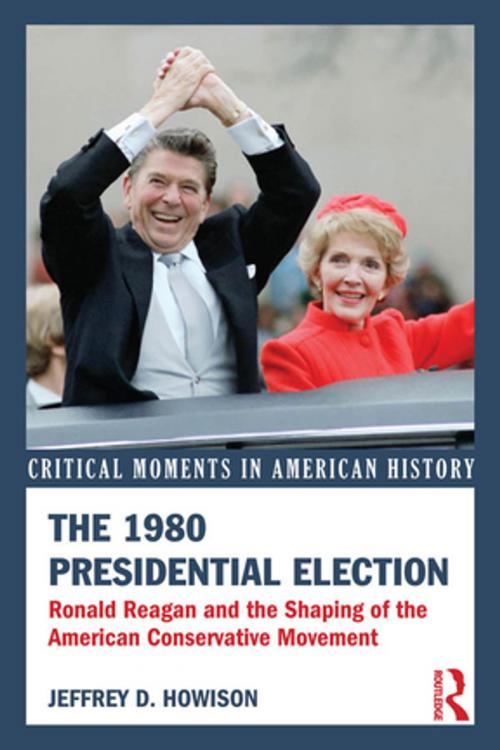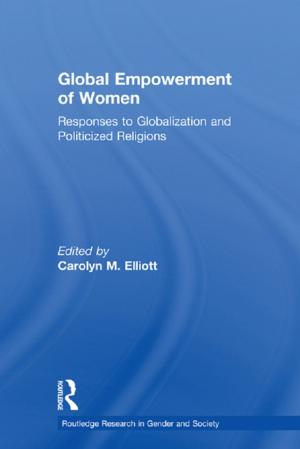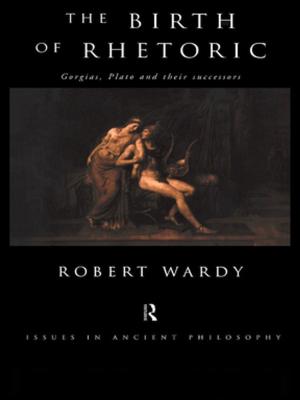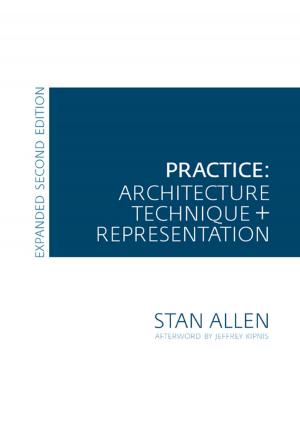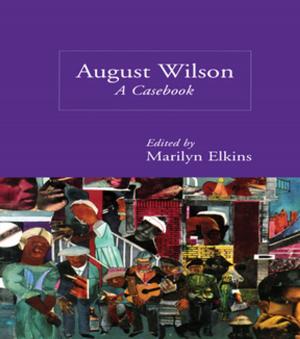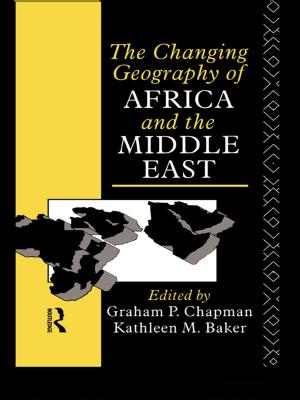The 1980 Presidential Election
Ronald Reagan and the Shaping of the American Conservative Movement
Nonfiction, History, Americas, United States, 20th Century| Author: | Jeffrey D. Howison | ISBN: | 9781136174100 |
| Publisher: | Taylor and Francis | Publication: | October 23, 2013 |
| Imprint: | Routledge | Language: | English |
| Author: | Jeffrey D. Howison |
| ISBN: | 9781136174100 |
| Publisher: | Taylor and Francis |
| Publication: | October 23, 2013 |
| Imprint: | Routledge |
| Language: | English |
Ronald Reagan’s victory in the 1980 presidential election marked a watershed moment in the history of the United States, heralding the triumph of the American conservative movement. Once a supporter of the New Deal, Reagan had come to symbolize the union of three diverse forms of conservatism—anti-communism, social traditionalism, and libertarianism—that were increasingly intertwined under the banner of the Republican Party. The unlikely development of this new conservative coalition was based upon the larger impacts of the civil rights movement in reshaping the dynamics of the Democratic and Republican parties, the social "backlash" of the Nixon era, the emergence of the religious right, and the economic and political crises that directly set the stage for Reagan’s stunning victory.
In five original, engaging chapters, The 1980 Presidential Election shows how Reagan’s journey to the White House was connected to the wider transformations of post-1945 American history. Supplemented by a fresh collection of primary documents—including previously unpublished transcripts of Reagan’s radio addresses of the late-1970s—this book is an ideal introduction to the origins and impact of the American conservative movement.
Ronald Reagan’s victory in the 1980 presidential election marked a watershed moment in the history of the United States, heralding the triumph of the American conservative movement. Once a supporter of the New Deal, Reagan had come to symbolize the union of three diverse forms of conservatism—anti-communism, social traditionalism, and libertarianism—that were increasingly intertwined under the banner of the Republican Party. The unlikely development of this new conservative coalition was based upon the larger impacts of the civil rights movement in reshaping the dynamics of the Democratic and Republican parties, the social "backlash" of the Nixon era, the emergence of the religious right, and the economic and political crises that directly set the stage for Reagan’s stunning victory.
In five original, engaging chapters, The 1980 Presidential Election shows how Reagan’s journey to the White House was connected to the wider transformations of post-1945 American history. Supplemented by a fresh collection of primary documents—including previously unpublished transcripts of Reagan’s radio addresses of the late-1970s—this book is an ideal introduction to the origins and impact of the American conservative movement.
